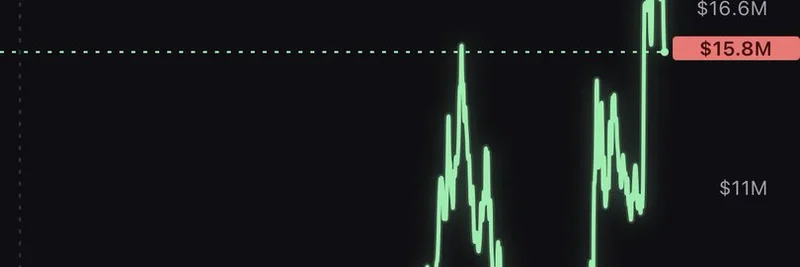Hey there, fellow crypto explorers! If you're knee-deep in the world of meme tokens and decentralized finance (DeFi), you've probably heard the buzz about the recent exploit on Bunni, a cutting-edge decentralized exchange (DEX). As someone who's been covering the wild ride of blockchain tech, I wanted to break this down for you in plain English. Let's unpack what went down, why it matters, and how it ties into the meme token scene.
Bunni isn't your average DEX—it's built on top of Uniswap V4, which is like the latest upgrade in the DeFi toolkit, allowing for more flexible liquidity management. Think of it as a shapeshifting platform that helps liquidity providers (LPs) maximize their profits no matter the market conditions. It uses something called a Liquidity Distribution Function (LDF) to smartly allocate funds, but unfortunately, that's where things went sideways.
According to reports from blockchain security firm BlockSec and various on-chain analysts, hackers exploited a vulnerability in Bunni's liquidity function. They manipulated the LDF by executing trades of very specific sizes, which tricked the system into miscalculating how much liquidity each provider was entitled to. Over time, this allowed the attacker to withdraw way more tokens than they should have, draining about $2.3 million in stablecoins—mostly USDC and USDT—from the platform's Ethereum pools. The funds ended up in a wallet address that's now holding around $1.33 million in USDC and $1.04 million in USDT.
Now, estimates on the total loss vary a bit across sources. Some outlets like Coinspeaker peg it at $8.4 million, factoring in hits on both Ethereum and Unichain (a layer-2 network). Others, including QuillAudits, have thrown around figures as high as $11.7 million, possibly including flash loans from Uniswap V3 and liquidity plays in Aave V3. But the initial alert from BlockSec, which sparked the original tweet from BSCN Headlines, sticks to that $2.3 million mark for the Ethereum side. Either way, it's a hefty blow and a reminder that even innovative protocols aren't immune to clever attacks.
The Bunni team didn't waste time responding. They quickly paused all smart contract functions across their networks—including Ethereum, Unichain, Arbitrum, Base, and BNB Smart Chain—to prevent further damage. A core contributor, going by @Psaul26ix on X, urged users to withdraw their funds ASAP. The official Bunni account confirmed the exploit and promised ongoing investigations with updates to follow. If you're an LP on Bunni, head over to their app and pull out your assets until the all-clear is given.
Why should meme token fans care? Well, DEXes like Bunni are hotspots for trading volatile assets, including those quirky meme coins that can moon or rug in a heartbeat. Platforms built on Uniswap V4 often attract meme projects because of their efficiency and lower fees, making them ideal for quick flips and liquidity bootstrapping. This hack underscores the risks in DeFi—smart contract bugs can wipe out gains fast, especially if you're farming yields on meme-related pools. It's a wake-up call to always DYOR (do your own research), check for audits, and maybe even diversify across multiple platforms.
In the broader blockchain landscape, this adds to a string of recent exploits highlighting security gaps in DeFi. Remember, while meme tokens bring the fun and potential profits, they're often traded on these very DEXes. Staying informed helps you navigate safer. If Bunni bounces back stronger (and many protocols do after audits and fixes), it could still be a go-to for optimizing LP returns in meme-heavy markets.
Keep an eye on Bunni's X account (@bunni_xyz) for the latest updates, and if you're into meme token insights, stick around Meme Insider for more breakdowns like this. What's your take—will this slow down DeFi innovation, or is it just growing pains? Drop your thoughts below!


